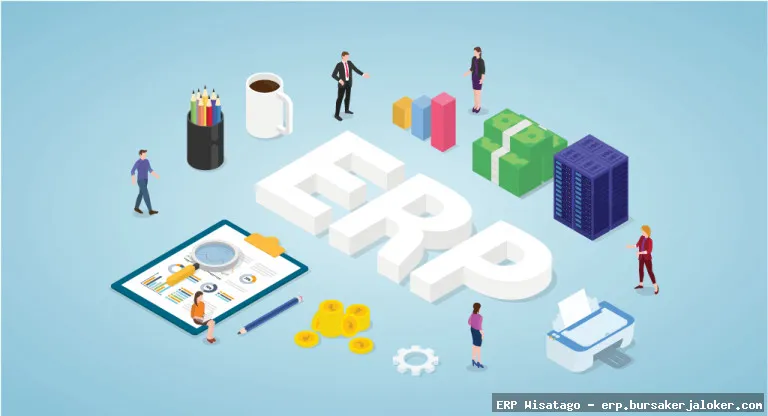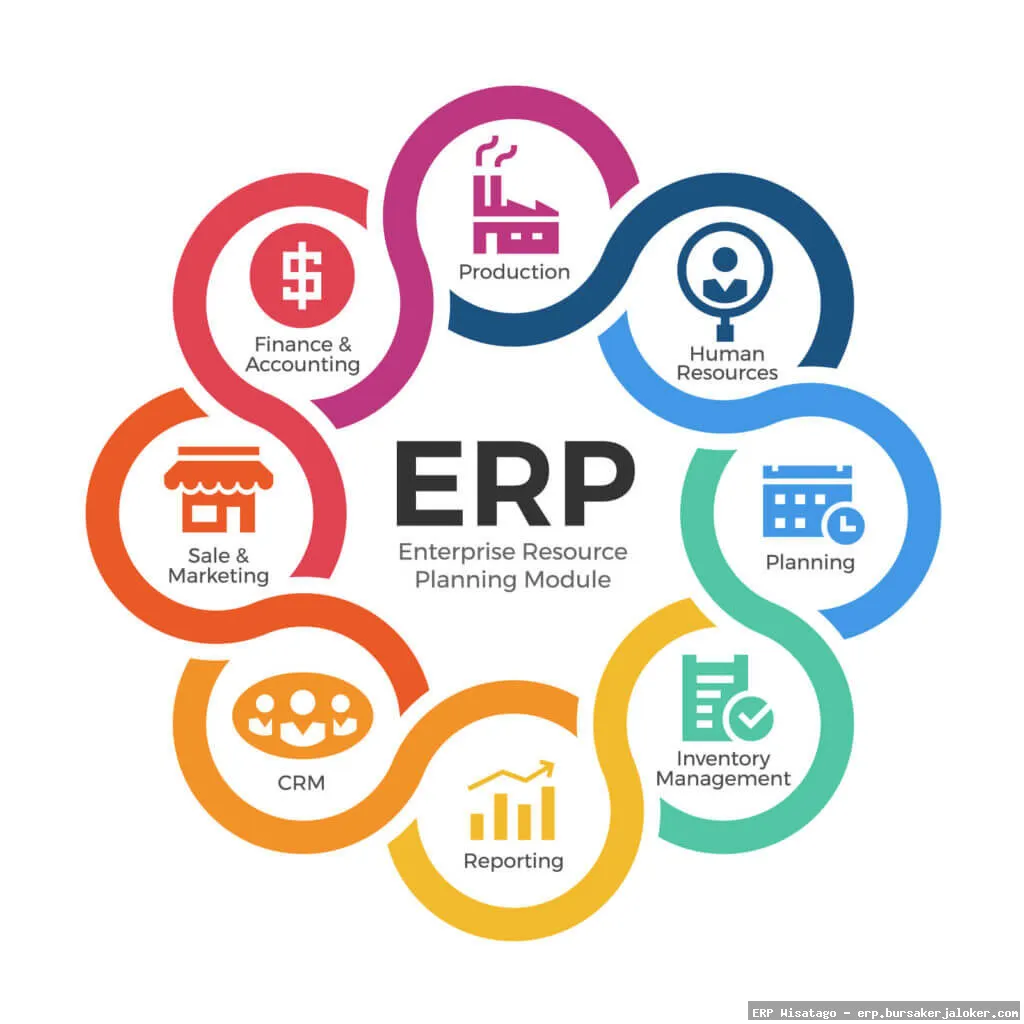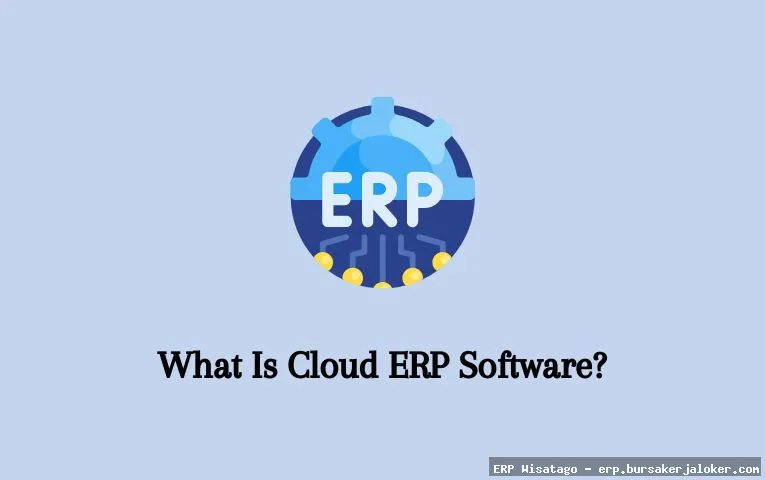Implementing an Enterprise Resource Planning (ERP) system can feel like a monumental task. I’ve been there – wading through demos, comparing features, and trying to decipher what each vendor really means when they promise “seamless integration.” It’s a crucial decision, one that can either revolutionize your business or become a costly, frustrating headache. In this guide, I’ll share my experiences and insights to help you navigate the world of ERP software reviews and make the right choice for your organization.
Think of ERP as the central nervous system of your business. It’s the software that connects all your departments – from finance and accounting to manufacturing, supply chain, and customer relationship management – into a single, unified system. The goal is to streamline processes, improve efficiency, and provide a real-time view of your business operations. But with so many ERP solutions available, how do you cut through the marketing hype and find the one that truly fits your needs?

This article will serve as your comprehensive guide to ERP software reviews. We’ll explore the key features to look for, discuss the different types of ERP systems, and provide practical tips for evaluating vendors. I’ll also share some common pitfalls to avoid and offer advice on how to ensure a successful ERP implementation. Let’s get started!
What is ERP Software and Why Do You Need It?
ERP software is a suite of integrated applications that manages and automates many of the back-office functions related to technology, services and human resources. It essentially provides a single database and reporting system across your entire organization, eliminating data silos and improving communication between departments.
Key Benefits of Using ERP Software
The benefits of ERP software are numerous and can significantly impact your business’s performance:. Effective IT management often relies on a robust system, and RMM can provide that oversight
.
- Improved Efficiency: Automate tasks, streamline workflows, and eliminate manual processes.
- Better Decision-Making: Gain real-time visibility into your business operations and make data-driven decisions.
- Enhanced Collaboration: Connect departments and improve communication across the organization.
- Reduced Costs: Optimize inventory management, reduce waste, and improve resource allocation.
- Increased Productivity: Empower employees with the tools they need to be more productive.
- Improved Compliance: Ensure compliance with industry regulations and standards.
- Scalability: Choose a system that can grow with your business.
When Should You Consider Implementing an ERP System?
Here are some telltale signs that your business might benefit from an ERP system:
- You’re using multiple, disconnected software systems that don’t “talk” to each other.
- You’re spending too much time on manual data entry and reconciliation.
- You lack real-time visibility into your business operations.
- You’re struggling to manage inventory effectively.
- You’re experiencing bottlenecks and inefficiencies in your workflows.
- Your current systems are outdated and no longer meet your needs.
- You are experiencing difficulty scaling your operations.
Key Features to Look for in ERP Software
Not all ERP systems are created equal. The best ERP for your business depends on your specific needs and requirements. Here are some key features to consider when evaluating ERP software:
Core Modules
These are the fundamental building blocks of any ERP system:
- Financial Management: General ledger, accounts payable, accounts receivable, budgeting, forecasting.
- Supply Chain Management: Inventory management, order management, procurement, warehouse management.
- Manufacturing: Production planning, shop floor control, quality management.
- Customer Relationship Management (CRM): Sales force automation, marketing automation, customer service.
- Human Resources Management (HRM): Payroll, benefits administration, talent management.
Advanced Features
Depending on your industry and business needs, you may also want to consider these advanced features:
- Business Intelligence (BI): Reporting, analytics, dashboards.
- E-commerce Integration: Integration with your online store.
- Project Management: Project planning, resource allocation, time tracking.
- Service Management: Field service management, warranty management.
- Advanced Planning and Scheduling (APS): Optimization of production schedules.
Integration Capabilities
A critical aspect of any ERP system is its ability to integrate with other systems. Make sure the ERP you choose can integrate with your existing software, such as:
- CRM systems (if you choose a standalone CRM)
- E-commerce platforms
- Shipping and logistics providers
- Banking and payment gateways
Types of ERP Deployment: Cloud vs. On-Premise
One of the first decisions you’ll need to make is whether to deploy your ERP system in the cloud or on-premise.
Cloud ERP
Cloud ERP is hosted on the vendor’s servers and accessed over the internet. The benefits of cloud ERP include:
- Lower upfront costs: No need to invest in expensive hardware and infrastructure.
- Faster implementation: Cloud ERP systems can be deployed much faster than on-premise systems.
- Automatic updates: The vendor handles all software updates and maintenance.
- Scalability: Easily scale your system up or down as your business needs change.
- Accessibility: Access your ERP system from anywhere with an internet connection.
On-Premise ERP
On-premise ERP is installed on your own servers and managed by your IT staff. The benefits of on-premise ERP include:

- Greater control: You have complete control over your data and infrastructure.
- Customization: You can customize the system to meet your specific needs.
- Security: You may feel more secure knowing that your data is stored on your own servers.
The choice between cloud and on-premise ERP depends on your budget, IT resources, and security requirements. Cloud ERP is generally a good option for small and medium-sized businesses, while on-premise ERP may be a better fit for larger enterprises with complex needs.
How to Evaluate ERP Software Reviews
Reading ERP software reviews is a crucial step in the selection process. However, it’s important to approach these reviews with a critical eye.
Where to Find ERP Software Reviews
There are several online resources where you can find ERP software reviews:
- Gartner Peer Insights: Offers verified reviews from real users.
- G2: Another popular platform for software reviews.
- Capterra: Provides a comprehensive directory of ERP software with user reviews.
- TrustRadius: Focuses on providing in-depth, unbiased reviews.
- Industry-Specific Forums: Search for forums related to your industry; often, you’ll find discussions about ERP software.
What to Look for in ERP Software Reviews
When reading reviews, pay attention to these factors:
- Relevance: Are the reviewers in a similar industry or have similar business needs to yours?
- Specificity: Do the reviews provide specific details about the software’s features, functionality, and ease of use?
- Objectivity: Are the reviews balanced, highlighting both the pros and cons of the software?
- Verification: Are the reviews verified, ensuring that they are from real users?
- Recency: Are the reviews up-to-date, reflecting the current version of the software?
Don’t Rely Solely on Reviews
While reviews can be helpful, they shouldn’t be the only factor in your decision. Schedule demos with multiple vendors and ask specific questions about your business needs. A good vendor will take the time to understand your requirements and explain how their software can help you achieve your goals.
Common Pitfalls to Avoid During ERP Implementation
Implementing an ERP system is a complex project, and there are several common pitfalls to avoid:
Lack of Clear Goals and Objectives
Before you start the implementation process, clearly define your goals and objectives. What do you hope to achieve with the new ERP system? How will you measure success? Without clear goals, it’s easy to get lost in the details and end up with a system that doesn’t meet your needs.
Insufficient Planning
Proper planning is essential for a successful ERP implementation. Develop a detailed project plan that includes timelines, milestones, and resource allocation. Identify potential risks and develop mitigation strategies.
Inadequate Training
Your employees need to be properly trained on the new ERP system. Provide comprehensive training to all users, and make sure they have access to ongoing support. Untrained users will struggle to use the system effectively, leading to frustration and decreased productivity.
Poor Data Migration
Migrating your data from your old systems to the new ERP system can be a challenging task. Make sure you have a plan for data migration and that you clean and validate your data before migrating it. Poor data quality can lead to inaccurate reports and flawed decision-making.
Insufficient Testing
Thoroughly test the new ERP system before you go live. Test all key processes and workflows, and make sure the system integrates properly with your other systems. Insufficient testing can lead to costly errors and disruptions after go-live.

Tips for a Successful ERP Implementation
Here are some tips to help you ensure a successful ERP implementation:
- Get executive buy-in: Secure the support of your senior management team.
- Form a dedicated project team: Assemble a team of experts from different departments to oversee the implementation.
- Choose the right vendor: Select a vendor with a proven track record and a deep understanding of your industry.
- Communicate effectively: Keep all stakeholders informed throughout the implementation process.
- Embrace change management: Help your employees adapt to the new system and processes.
- Monitor and optimize: Continuously monitor the performance of your ERP system and make adjustments as needed.
Conclusion
Choosing and implementing an ERP system is a significant investment, but it can be a game-changer for your business. By carefully evaluating your needs, researching different solutions, and following the tips outlined in this guide, you can increase your chances of a successful implementation and unlock the full potential of ERP software. Remember to focus on finding a solution that aligns with your specific business requirements and provides a clear path to achieving your goals. Good luck!
Frequently Asked Questions (FAQ) about ERP software reviews
What are the most important factors to consider when reading ERP software reviews to determine the best fit for my business?
When evaluating ERP software reviews, several factors are critical for determining the best fit for your business. First, consider the industry-specific functionality. Does the review mention whether the software caters to your specific industry needs, such as manufacturing, retail, or healthcare? Generic ERP systems may lack critical features. Second, pay attention to the scalability of the software. Can it grow with your business as your needs evolve? Look for reviews that discuss the software’s ability to handle increasing data volumes and user loads. Third, analyze the integration capabilities. Does the review detail how well the ERP system integrates with existing systems like CRM or e-commerce platforms? Seamless integration is crucial for data flow and efficiency. Finally, scrutinize the user-friendliness and ease of implementation. A complex system with a steep learning curve can hinder adoption and productivity. Look for reviews that mention the user interface, training resources, and the quality of customer support offered during implementation.
How can I identify biased or unreliable ERP system reviews and ensure I’m getting accurate information?
Identifying biased or unreliable ERP system reviews is essential for making informed decisions. Start by checking the source of the review. Are they from reputable websites specializing in software reviews, or from the vendor’s own website? Be wary of overly positive reviews on the vendor’s site. Look for reviews on independent platforms like G2, Capterra, or TrustRadius. Next, examine the reviewer’s profile. Do they have a legitimate business title and company affiliation? Anonymous or vague profiles can be a red flag. Pay attention to the level of detail in the review. Generic statements without specific examples suggest a lack of genuine experience. Look for reviews that discuss specific features, pros, and cons. Finally, consider the overall tone of the review. Is it balanced, or overly enthusiastic or negative? A balanced review will acknowledge both the strengths and weaknesses of the ERP software. Cross-reference information from multiple sources to get a comprehensive and unbiased perspective.
Besides star ratings, what specific aspects of ERP software should I focus on when reading reviews to understand its suitability for my company’s needs?
Beyond star ratings, focusing on specific aspects of ERP software reviews is crucial for determining its suitability for your company. Pay close attention to reviews addressing customization and configuration options. Can the software be tailored to your unique business processes without extensive coding? Look for reviews mentioning the ease of customization and the availability of pre-built modules. Secondly, analyze the reporting and analytics capabilities. Does the software offer comprehensive reporting tools and dashboards to track key performance indicators (KPIs)? Reviews should describe the types of reports available and the ability to create custom reports. Third, investigate the mobile accessibility. Does the ERP system offer mobile apps or a mobile-friendly interface? This is increasingly important for remote workers and field operations. Finally, examine the total cost of ownership (TCO). Reviews should discuss not only the initial purchase price but also ongoing maintenance fees, implementation costs, and training expenses. Understanding the full TCO is essential for budgeting and ROI calculations when selecting the right ERP solution.
